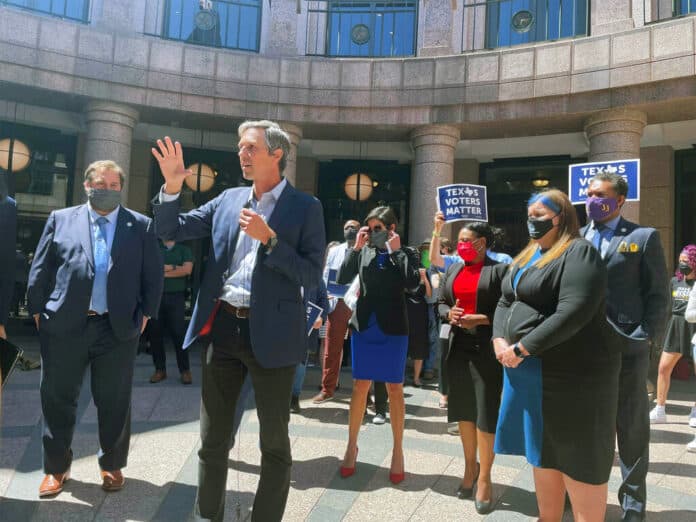By ACACIA CORONADO The Associated Press/Report for America
AUSTIN, Texas (AP) — As Texas legislators gather in person Friday to consider sweeping changes to who in the nation’s second-largest state can cast a ballot and how, some voters say the ongoing coronavirus pandemic is forcing them to choose between their health and their right to be heard by their government.
So they are staying away from the Capitol.
Proposed legislation before the state Senate and House is part of Republicans’ nationwide campaign to restrict voting and impose new limits on mail-in voting, grant more power to partisan poll watchers and include a doctor’s note requirement for people with disabilities who want to vote by mail for a full year in Texas, which already has some of the strictest voting laws in the U.S.
Amy Litzinger, of Austin, is among Texans who say the health conditions that are directly affected by a Senate bill requiring a doctor’s note to vote absentee for a year are the same that will prevent them from testifying in person. In Texas, people are not allowed to testify virtually before the state Senate, and people can only testify via video by invitation in House hearings.
The 33-year-old Litzinger has spastic quadriplegic cerebral palsy, which affects balance and movement. She uses a wheelchair. The disorder also makes her particularly vulnerable to COVID-19.
Litzinger, who has a degree in political science, said a Senate bill being heard Friday makes her feel like her vote isn’t valued. Requiring a doctor’s note can be difficult because of some insurance company requirements. Her signature doesn’t always look the same because of her medical condition — something the bill instructs election workers to verify for mail-in voters.
“I don’t feel like I am as much a part of Texas as I would like to be if I am not participating at least in the most basic level,” Litzinger said.
GOP Sen. Bryan Hughes, who authored the bill being heard Friday before a committee he chairs, said the bill’s overarching goal is to “make it easy to vote and hard to cheat.” He said it is “common sense measures to clean up” the different processes involved in an election, from how it takes place to how votes are collected.
Earlier this week, a procedural gaffe deprived more than 100 people, including former Democratic congressman Beto O’Rourke, of the chance to testify about a Republican House bill on voting restrictions. The blunder on the part of GOP state Rep. Briscoe Cain happened Thursday during a hearing when parliamentary rules brought an abrupt end to a meeting after he called for a recess without setting a time to return.
“Even though I wish very much to continue today’s hearing, the rules prevent me from doing so. Please forgive me for my error,” said Cain, an ardent supporter of former President Donald Trump who volunteered after the November election to help Trump’s campaign pursue its baseless voter fraud case.
Voter fraud is extremely rare.
Some found a silver lining to the bungled end of the hearing. Emily Eby, an attorney with the Texas Civil Rights Project, had traveled from Houston to testify against the bill.
“Any delay is a good delay,” she said.




